MercoPress. South Atlantic News Agency
Economy
-
Tuesday, May 13th 2014 - 18:51 UTC
IMF warns Latin America about changing times and calls for fiscal prudence
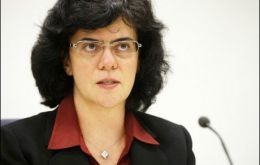
The International Monetary Fund (IMF) has suggested that Argentina could benefit from cutting public spending destined for subsidies on energy costs, stating that such policies are “very costly and distort economic activity.”
-
Monday, May 12th 2014 - 23:56 UTC
Mujica asks Obama support for scientific knowledge and to combat smoking
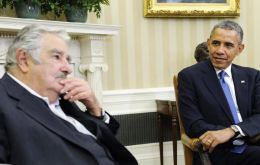
In an enjoyable press conference at the White House Uruguay's President Jose Mujica spoke about the increasing importance for people in the US to be bilingual, the dangers of smoking and his interest in having access to U.S. knowledge and professors. President Barrack Obama praised the Uruguayan leader's 'extraordinary' credibility and leadership in democracy and human rights issues.
-
Monday, May 12th 2014 - 23:51 UTC
Lima ranks as the Latin American with best reputation for making business
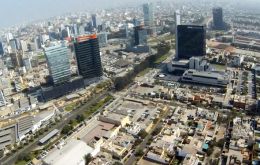
Lima, capital of Peru outstands as the leading Latin American city to make business, followed by Santiago de Chile, Buenos Aires, Argentina and Sao Paulo, Brazil, although these last two actually dropped from the previous ranking, according to an annual list made by the Bogotá Rosario University.
-
Monday, May 12th 2014 - 20:03 UTC
Falklands' fisheries success story: 20 years of Consolidated and 10 of CFL Gambler

Falkland Islands Consolidated Fisheries Ltd (CFL) celebrated its 20th anniversary as a company at a reception and banquet at Malvina House Hotel. It also celebrated the 10th anniversary of its vessel CFL Gambler’s blessing and highlighted the MSC certification of the toothfish fishery.
-
Sunday, May 11th 2014 - 08:34 UTC
Falklands discusses capital projects investments over the next five years

Falkland Islands members of the Legislative Assembly made an open, public presentation, with feedback, to explain how approximately £61.1 million in available government funds might be divided between capital projects over the next five years.
-
Saturday, May 10th 2014 - 08:03 UTC
Brazil's auto production rose in March but is down 21,4% compared to 2013
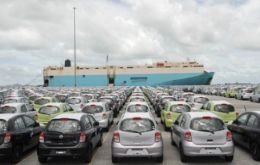
Brazilian vehicle production rose 1.6% last month compared with March, but was down 21.4% from the level of April 2013, the Anfavea auto industry association said Friday. Last month saw 277,100 cars, trucks, SUVs and buses roll off assembly lines in Brazil, significantly short of the 352,400 vehicles produced by Latin America's largest economy in April 2013.
-
Saturday, May 10th 2014 - 00:45 UTC
Latam and Caribbean committed to eradicate hunger in the region by 2025
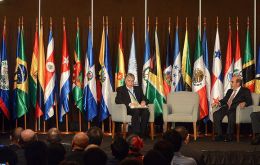
Countries of Latin America and the Caribbean have advanced a robust agenda aimed at achieving the eradication of hunger in the region, during a major FAO meeting which concluded on Friday in Chile.
-
Saturday, May 10th 2014 - 00:21 UTC
German exporters say they can cope with a strong Euro
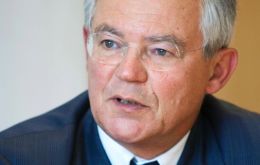
German exporters are well-positioned to cope with the strong Euro, Germany's leading trade organization said on Friday, even after data showed exports posted their biggest fall in nearly a year in March.
-
Saturday, May 10th 2014 - 00:13 UTC
ECB ready to take action against low inflation and strong Euro, says Dragui
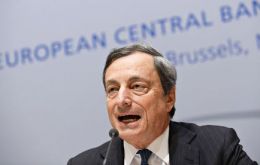
The European Central Bank is ready to take action next month to boost the Euro zone economy if updated inflation forecasts merit it, said ECB president Mario Dragui warning outsiders not to pressure the bank into action.
-
Saturday, May 10th 2014 - 00:05 UTC
Despite some setbacks, FAO expects second largest cereal production this year
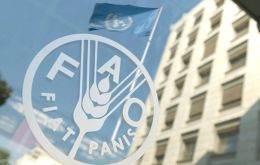
Weather conditions in various countries and political tensions in the Black Sea region have made food markets more volatile, FAO reports in the new Food Outlook. In its first major forecast for 2014, FAO puts cereal production at 2 458 million tons (including milled rice), down some 2.4% from the 2013 record, though global output is still expected to be the second largest ever.
